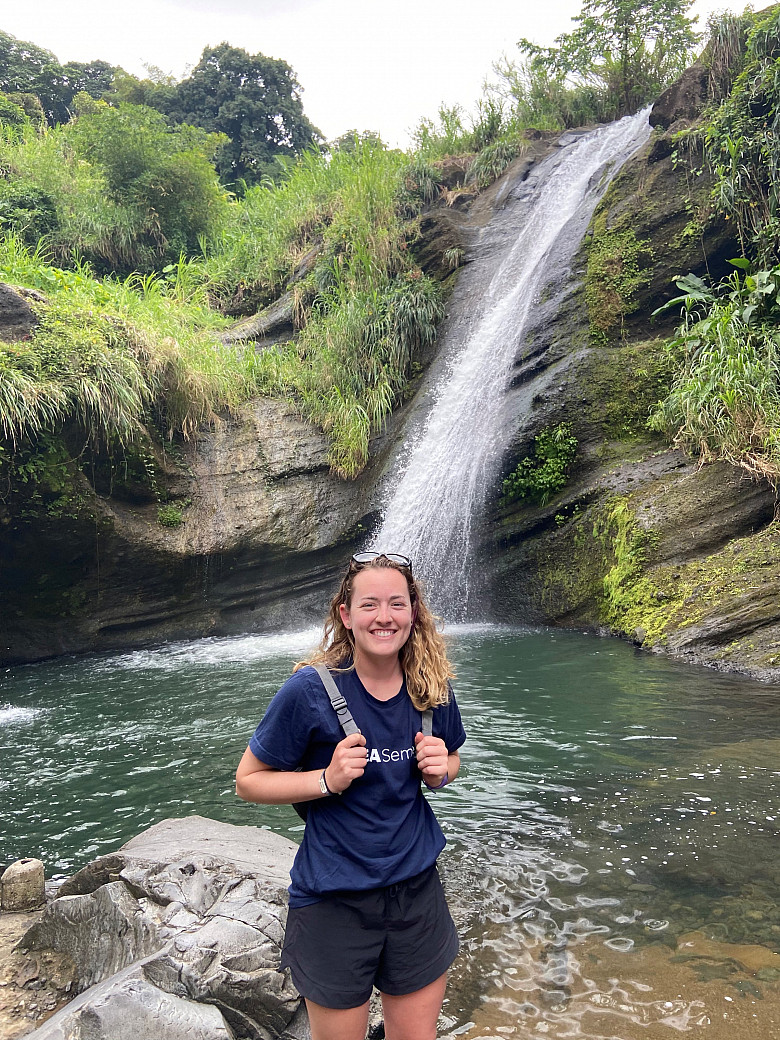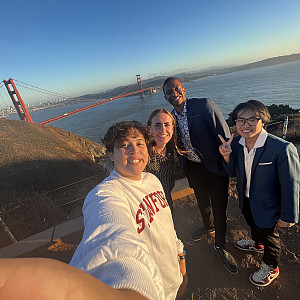Future steward for the environment
The last few years have been a whirlwind of change for Kaylie Williams’21.
This time two years ago, she was learning how to steer a ship in the middle of the Atlantic Ocean during her Sea Education Association (SEA) Semester based in the U.S. Virgin Islands. Shortly before her program was scheduled to end, the pandemic forced her to return to her small hometown of Kelseyville, Calif., where she found a job waitressing.
In fall 2020, Kaylie began an uncertain senior year in Beloit. As the women’s swim team captain, she found herself without a season to prepare for, with Midwest Conference sports suspended.
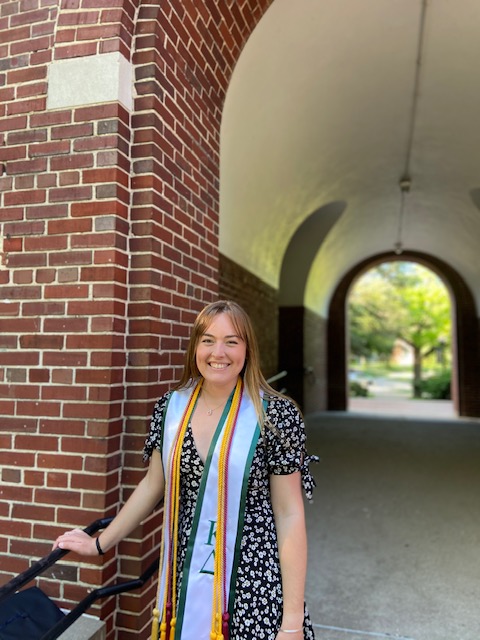
Despite graduating magna cum laude with a major in history and a double minor in English and environmental studies, she worried about moving back home and entering an uncertain job market. Like many of her class of 2021 peers, Kaylie felt untethered.
After a summer of part-time swim coaching and applying to dozens of positions, Kaylie started work in October 2021 as a park aide at Clear Lake State Park in Clearlake, Calif. — a step in the right direction for the hopeful environmental steward. There, she works four 10-hour shifts a week, greeting visitors, helping them check out fishing and boating equipment, cleaning trails, and, on a good day, hiking or driving around the park to check on campsites.
The position has paired Kaylie’s interests in educating the public about Indigenous history and protecting the environment — both of which were nurtured at Beloit.
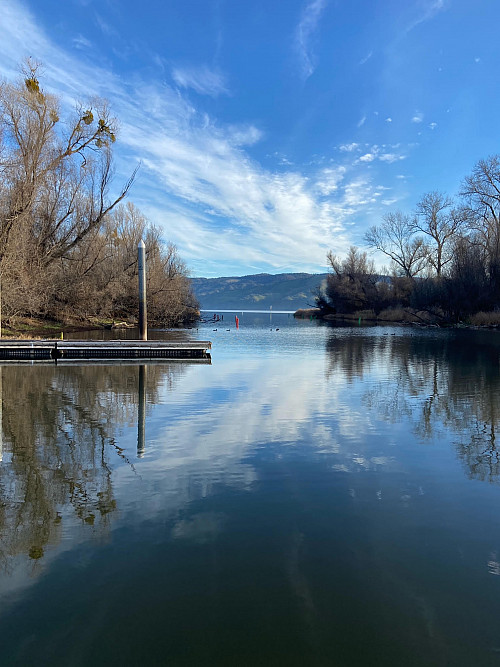
“The major and the curriculum that I chose have practical applications every day,” Kaylie says. “I’m talking to people about Native heritage sites and the history of the park. I’ll only do that more as I grow into a bigger position, so in that way, my education was really practical. I think I chose the perfect field to enter.”
With a foot in the door, Kaylie hopes to continue in the state park system and eventually become a park interpreter, a role she describes as “a ranger without the law enforcement.” In the position, she would also conduct park walks and oversee research for the site’s visitor center.
Kaylie learned about Native American history in her courses with Assistant Professor of History Kate Johnston. If she continues to move up at Clear Lake, she hopes to collaborate with Southern Pomo and Coast Miwok tribes, which have an agreement with the park to create collaborative exhibits and make other desired changes.
In addition to improving her writing, becoming a better researcher, and contributing to class discussions while at Beloit, Kaylie developed the confidence to step outside her comfort zone.
“Without Beloit, I would not have experienced some of the growth that I did,” she says. “I went abroad and across the country for school — that was a big step in itself. I think being around so many different personalities and identities and in such a different place from where I grew up made me better able to carry on conversations about history and nature.”
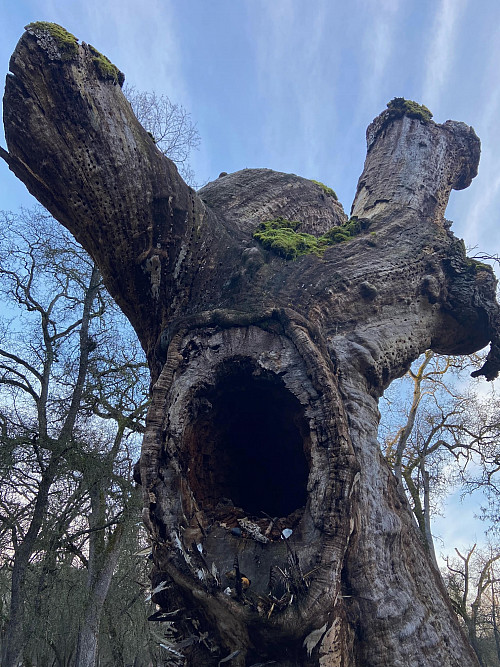
One of the main reasons she decided to attend Beloit was how quickly she felt a sense of belonging after visiting a class during a campus visit.
“I went to a class — I think it was an English class — and sat in the WAC South Lounge. The class was 10-12 people and they all walked in and sat at this big, long table. The thing that struck me about it was the personal relationship that every student had to the professor, calling them by their first name. I came from a really small high school where we did kind of the same thing, so it felt comforting to feel so far from home but have something to relate to. I felt so welcomed — not just because I was a prospective student, but because I could fit in here,” Kaylie says.
Her first-year seminar course with Professor of English Chris Fink, called In Search of the Poet, introduced her to poet Lorine Niedecker, who attended Beloit in the early 1920s. The class, which she described as “magical,” bonded during a field trip to the poet’s home in Fort Atkinson, Wis., where Kaylie and her classmates conducted oral histories with family and friends of Niedecker.
“We had such a wonderful group of people. That was my first introduction to so many different kinds of personalities that coexist at Beloit. When we just started out, there were times where we would all come in [the classroom] — all freshmen and trying to figure it out — and [someone said], ‘Wow, finals are really kicking my butt this week.’ Chris would say, ‘Alright, let’s sit down and talk about it. How is everyone doing?’ I think we really lucked out,” she says.
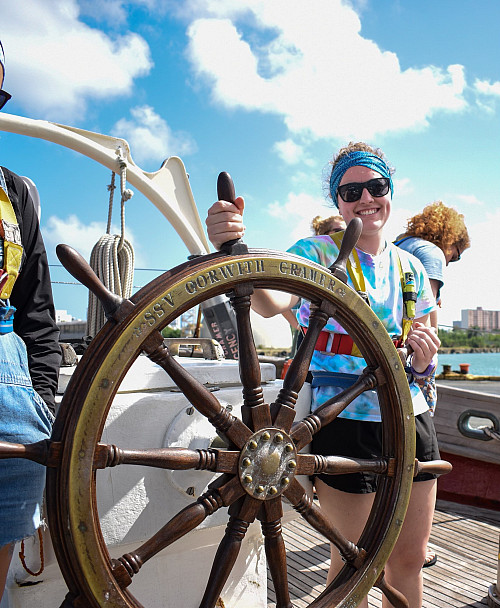
Kaylie describes the SEA Semester as a similarly transformative experience, not only because of the connections she made with her crewmates, but also because working with conservation nonprofits made her think differently about what she wanted to do with the rest of her life. She already decided by then that she didn’t want to teach or work in a history museum — especially since she “basically grew up outdoors” and hated the idea of a desk job. Now, with more knowledge and passion in her arsenal, she’s headed into a field that will give her both access to nature and the ability to protect it.
“When I started doing my own research project on the boat, I worked with people from the forestry department on these small islands, and that was a big turning point,” she explains. “I was out on the ocean and saw how beautiful and diverse it is and learned about all the different types of ecosystems. I decided I want to be a force for change in the future. I want to be a steward. I want to teach others what it means to be a steward for the environment. I want to inspire children and adults to take action.”
